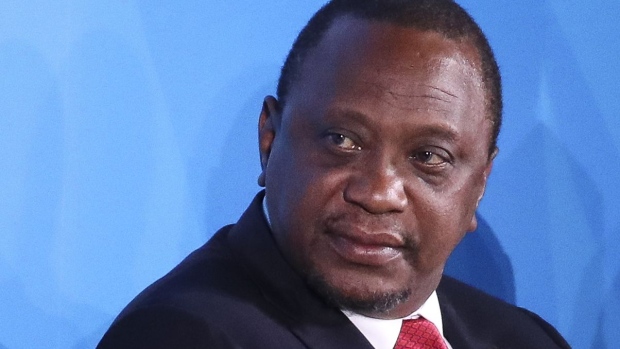May 7, 2021
Kenyan Lawmakers Back Plan to Reshape State, End Vote Violence
, Bloomberg News

(Bloomberg) --
Kenyan lawmakers backed a plan to restructure the government and share power more equitably to help avoid a repeat of violent election disputes.
The National Assembly approved the constitutional amendment bill late Thursday, with 224 voting in favor, 63 rejecting it and two abstaining. The proposed changes, known as the Building Bridges Initiative, will be put to a referendum that’s expected to take place before a general election scheduled for next year.
The new legislation calls for the reintroduction of the role of prime minister and two deputies, and the creation of the position that recognizes the head of the opposition. President Uhuru Kenyatta and opposition leader Raila Odinga have said the changes will provide greater political representation for the nations dozens of ethnic groups and end winner-take-all elections.
Kenya, a regional hub for global brands including Alphabet Inc. and Coca-Cola Co., has struggled to put an end to vote-related clashes. A dispute over a 2007 ballot left more than 1,100 people dead, while more recent elections have also been marred by violence.
Big Government
The bill has raised concern that a bigger government will require more spending at a time when the state is struggling to narrow its budget deficit from a projected 8.7% of gross domestic product in the year through June.
The government could need more than 5.5 billion shillings ($51 million) a month to maintain the larger structure, according to a study by the Institute of Economic Affairs of Kenya. The government wage bill stood at 827 billion shillings in the 2019-20 budget year, equivalent to 8.3% of GDP.
Kenyatta and Odinga joined forces to support the proposed changes after a reconciliation in 2018. The detente split the ruling party, with supporters of Deputy President William Ruto saying it was aimed at preventing him from succeeding Kenyatta in next year’s election.
Both Kenyatta and Odinga have denied the initiative has anything to do with who succeeds the president.
Ruto has also criticized parts of the bill, arguing that adding positions to the executive won’t necessarily create an inclusive government. He’s also said a proposal that allows the president to appoint an ombudsman for the judiciary could compromise its independence.
The amended legislation also calls for an increase in the share of the national budget that goes to regional governments to 35% from 15%. Kenyatta and Odinga have both argued that change will strengthen governance in the country’s provinces.
©2021 Bloomberg L.P.






